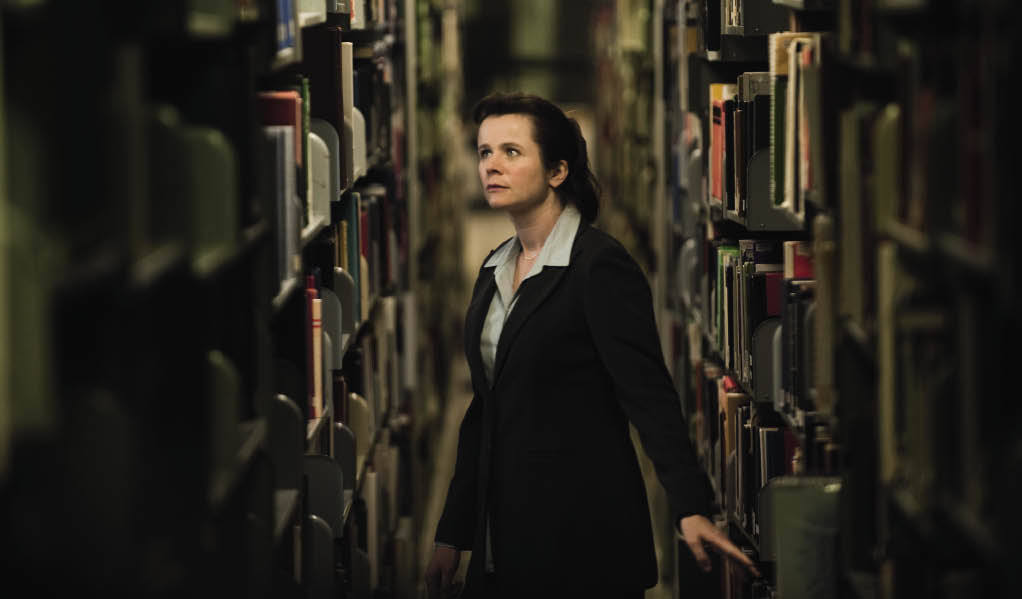I didn’t much like Oranges and Sunshine and I’ll tell you for why: it takes one of the most obscene scandals in 20th-century British politics — the mass forced deportation of British children to Australia, which began in the 1920s and continued right up until 1970 — and all but kills it off with its self-righteous stance, plodding script, mournful violins and clunky construction.
I didn’t much like Oranges and Sunshine and I’ll tell you for why: it takes one of the most obscene scandals in 20th-century British politics — the mass forced deportation of British children to Australia, which began in the 1920s and continued right up until 1970 — and all but kills it off with its self-righteous stance, plodding script, mournful violins and clunky construction.
This should have been as moving as hell. This should have been so heart-rending I should have come out the cinema saying, ‘You know what, I don’t think my heart has ever been so rended. I’m going to take it to be un-rended first thing tomorrow, but I just don’t know if they’ll be able to fix it this time.’ Actually, some years ago, Charles Wheeler presented a Radio 4 series using individual testimonies to tell this very story and, listening in the car, I had to pull in, I was crying so hard. But I scarcely felt a thing during this. No, that’s not quite true. I did feel we were all being patronised somehow.
Directed by Jim Loach, son of Ken, who can also have his off days, this is the story of those children, as told through the story of Margaret Humphreys, the Nottingham social worker who first exposed the scandal. Emily Watson plays Margaret and, although I’m generally of the mind that any film with Emily Watson in it can’t be all bad, this character is so good, and only good, it’s not like she can take the part anywhere. If you are given just the one broad brush stroke to play, there can only be one way to play it and, in this instance, it’s with a sympathetically pained look and a tear in the eye.
Anyway, the film opens in 1986 when Margaret is approached by an Australian woman desperately searching for her true identity. Although Margaret does not initially believe the woman was shipped to Australia at four years old, along with hundreds of other unaccompanied children, she is intrigued enough to look into it and, hey presto, finds the woman’s mother within two minutes, even though the woman herself has sought this information for years with no success. On many occasions, Margaret’s astonishing bureaucratic efficiency — I wish she were on hand to sort out my paperwork — cuts though any of the drama there might otherwise have been.
Once Margaret travels to Australia to meet more ‘orphans’, more and more horrifyingly appalling facts came to light. The children, taken mostly from care homes, and told their parents had died, were shipped to the land of ‘oranges and sunshine’, where they were housed in run-down institutions and used as illegal labour, or placed with organisations like the Christian Brothers, where they were subjected to unthinkable physical and sexual abuse. It’s reckoned 130,000 children, known as the ‘seeds of empire’, were deported to the Commonwealth all in all, but this hones in on two: Jack (Hugo Weaving) and Len (David Wenham), who are now adults. Jack feels empty. He draws his curtains and sits alone in the dark on Mother’s Day. Len, meanwhile, refuses to be pitied, but Margaret pities him all the same. When he says he doesn’t talk about his pain because that’s whining, she says, condescendingly, ‘I don’t know about the man sitting in front of me, but I’m sure I’d like to talk to the little boy inside.’ If I were Len, I’d have punched her.
Loach Jr’s staging is also rather sentimentally predictable. One minute Margaret is falling apart and doesn’t know if she can carry on with this work, and the next an ecstatically happy reunited mother and daughter visit, giving Margaret just the boost she needs. It’s that sort of thing, over and over. And there is no mounting tension, or any kind of tension. Margaret just riffles through more files, yet again. Look, Margaret Humphreys — who, along with her social-worker husband, still works at reuniting families — is obviously an amazing woman, but this just isn’t an amazing film. It does the job, I suppose. It joins the dots. But, for a true story exploring such a mighty scandal, it feels remarkably concocted and flat, and it simply isn’t heart-rending. In one way, this is a good thing, as un-rending costs, and we are all trying to save money, right? But I’d like to have felt it all the same.






Comments